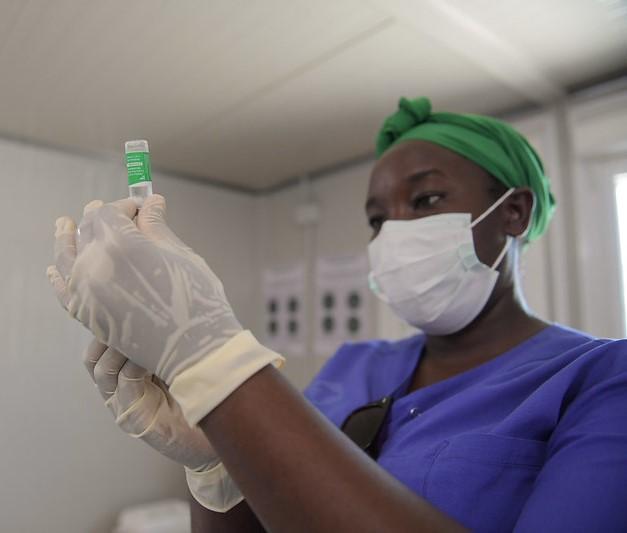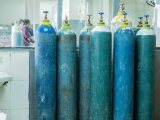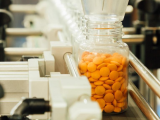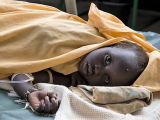A new Access to Medicine Foundation analysis of five major pharmaceutical companies highlights their strategies to improve access to generic and biosimilar drugs in low- and middle-income countries (LMICs) but finds a lack of efforts to make medications more affordable.
The inaugural report from the foundation's Generic & Biosimilar Medicines Programme looks at the efforts of Cipla, Hikma, Sun Pharma, Teva, and Viatris to identify gaps in reliable, affordable essential drugs in poor countries.
"Although examples of access strategies could be identified, within these there was almost no evidence of strategies designed to boost affordability by taking ability-to-pay into account, especially for patients paying out of pocket," the Access to Medicine news release said.
The companies were chosen based on their size, influence, and involvement in global health; 90% of the 102 off-patent essential drugs the foundation identifies as priorities for access in LMICs are in the portfolios of at least one of these companies.
Generics, biosimilars still out of reach for many patients
Access to Medicine said that of the drugs the World Health Organization (WHO) classified as essential, 90% have expired patents, meaning that drug makers are free to develop a generally lower-cost generic or biosimilar version, which may promote competition and boost supplies. These drugs are used to treat a wide variety of conditions such as cancer, heart disease, diabetes, tuberculosis, malaria, and HIV.
"Some of these companies now also manufacture generic or biosimilar versions of patented products under voluntary licensing agreements, which can expand and accelerate access to innovative medicines worldwide," the release said. "However, generic and biosimilar products are still out of reach for many patients in LMICs, especially those living in low-income countries and those from vulnerable populations," who may still not be able to afford them.
David Margraf, PharmD, PhD, pharmaceutical research scientist at the Resilient Drug Supply Project (RDSP), said, "Significant challenges exist that require a coordinated effort from governments, pharmaceutical companies, international organizations, and healthcare providers to ensure that high-quality medications are accessible and affordable for all."
RDSP is part of the University of Minnesota's Center for Infectious Disease Research and Policy (CIDRAP), publisher of CIDRAP News.
Few to no COVID drugs registered in LMICs

The report reveals the potential for the drug companies to register more essential medicines in LMICs. "Promisingly, in 90 out of 108 countries in scope, at least one company has registered a product, which indicates that the companies' existing regulatory reach in LMICs is collectively broad," the release said. "It also demonstrates their capability to register other products within that same country."
An evaluation of 10 essential drugs per company shows that the firms have registered them in 77 of the 90 countries in which they had previous regulatory activity. These included registrations in 38 of the 55 lower-middle income countries, 19 of the 27 low-income countries, and 20 of the 26 upper-middle income countries in scope.
Some of these drugs are registered in only a few LMICs, and an assessment of the drug makers' product registration practices in those countries reveals significant between-company variation. For example, one company didn't file any of its 10 assessed products in any low-income country. There were few to no registrations for COVID-19 drugs, while those for HIV treatments covered about 40% of the countries within their licenses' scope.
For the 10 essential drugs evaluated per company, companies had strategies in place to expand access to 41 of them. "However, these strategies are very limited in scope and especially do not address affordability considerations for the poorest patients, including those who are uninsured and must pay out-of-pocket for medicine," the foundation said.
The report identified a few projects to increase local manufacturing capacity or facilitate technology transfer to local partners in LMICs. All companies had at least some strategies to support a resilient drug supply and ensure the safety and quality of their products.
Access to Medicine did find nine examples of companies' efforts to adapt research and development to targeted products specifically for LMICs, including those for children, those that don't require refrigeration, and formulations with simplified dosages. Three of the five companies have mechanisms to facilitate product registration, but they are underused, despite their potential to speed access to drugs.
Significant opportunities remain
The report suggests companies need to remedy these problems through either direct engagement in countries in which they operate or by working with local manufacturers and other partners in countries in which they are less well represented.
"As part of their registration strategies, they can prioritise products already registered by SRAs [stringent regulatory authorities] or prequalified by WHO, using mechanisms such as CRP [Collaborative Registration Procedure] or regional joint assessments that can facilitate and accelerate registration," the report said. "They can also prioritise registration in countries with a high burden of disease, focusing on medicines with access gaps in LMICs, including cancer, cardiovascular diseases, HIV, diabetes and mental health conditions."
Drug makers should also consider expanding beyond competitor-based models. "Companies can continue to expand their access strategies to include more products in their portfolios and consider payers' ability to pay in their pricing approaches," the authors wrote. "Engaging with the public sector is vital, encompassing strategies such as intra-country differential pricing for broader patient coverage, and participating in specific public sector programmes."





















